Arun Sudhaman 21 Nov 2023 // 4:55AM GMT
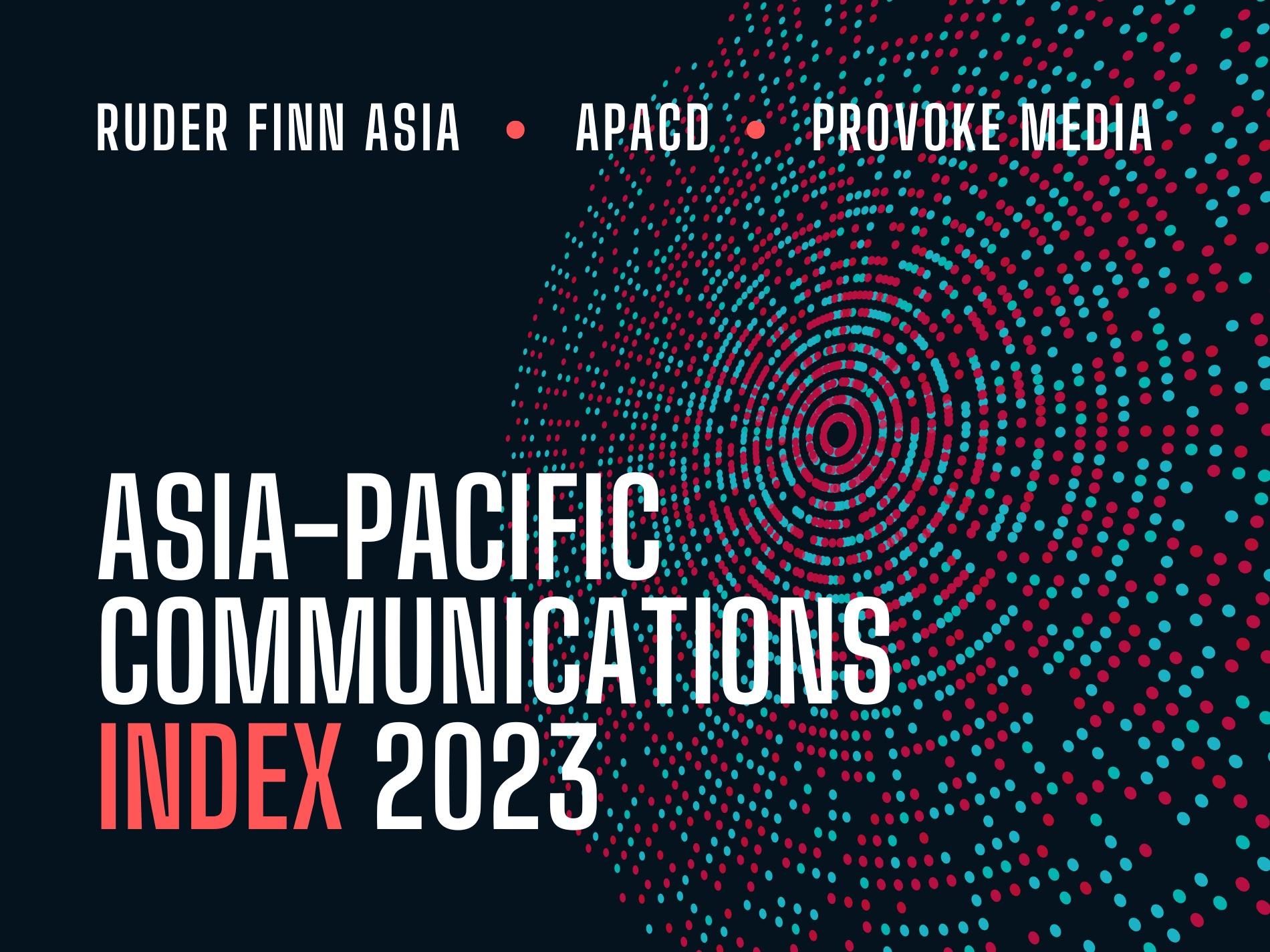
The 2023 Asia-Pacific Communications Index reveals today that almost half of the region's in-house communications leaders do not think generative AI tools such as ChatGPT can effectively automate routine PR and comms tasks, amid broader concern about potential job losses and skills gaps.
Conducted by the Asia-Pacific Association of Communication Directors (APACD) in conjunction with Ruder Finn Asia, the study — which polled more than 100 senior in-house communications executives across the region — launched by reporting that ESG is playing a key role in driving rising optimism and comms budgets.
In the latest instalment, PRovoke Media focuses on the rise of generative AI, which is expected to reshape communications and content capabilities. 48% of respondents do not believe tools like ChatGPT can effectively automate routine tasks in PR and comms.
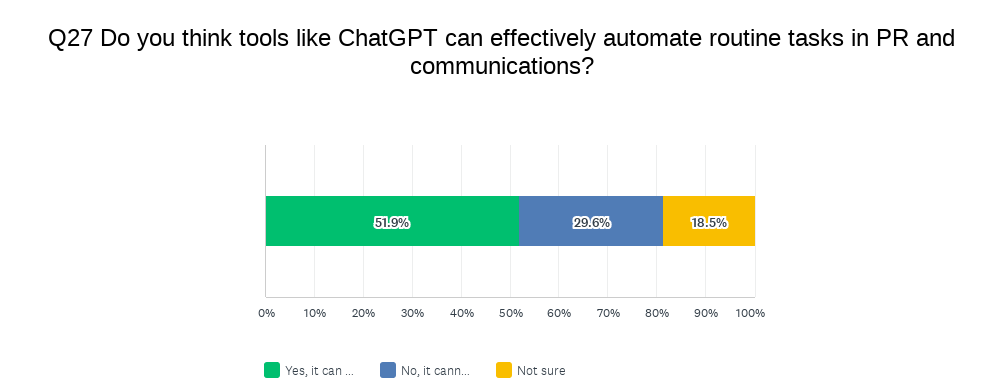
Meanwhile, clients are also concerned about potential job losses and skills gaps that may result from using generative AI tools to automate their work. However, less than a third (29%) are familiar with the tools, while an even smaller proportion (14%) regularly use them.
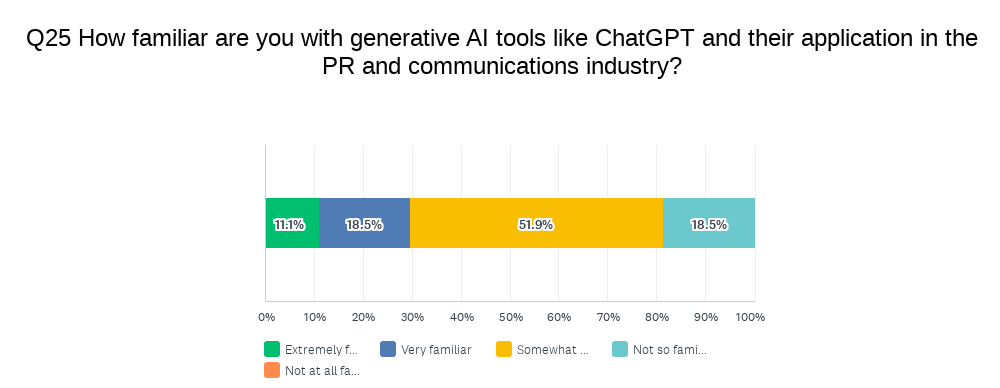
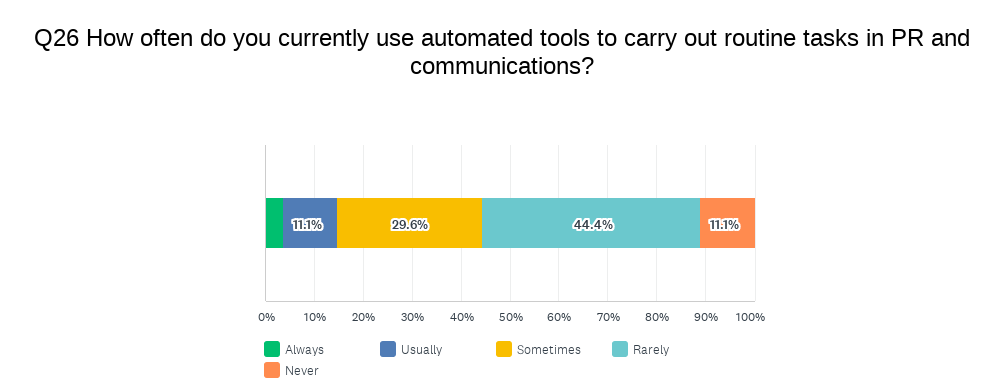
Most in-house leaders (72%) see efficiency and productivity as the key benefits AI can bring, ahead of cost savings. Less than three in 10 think there will be benefits in terms of content accuracy, knowledge sharing, messaging consistency or teamwork/collaboration.
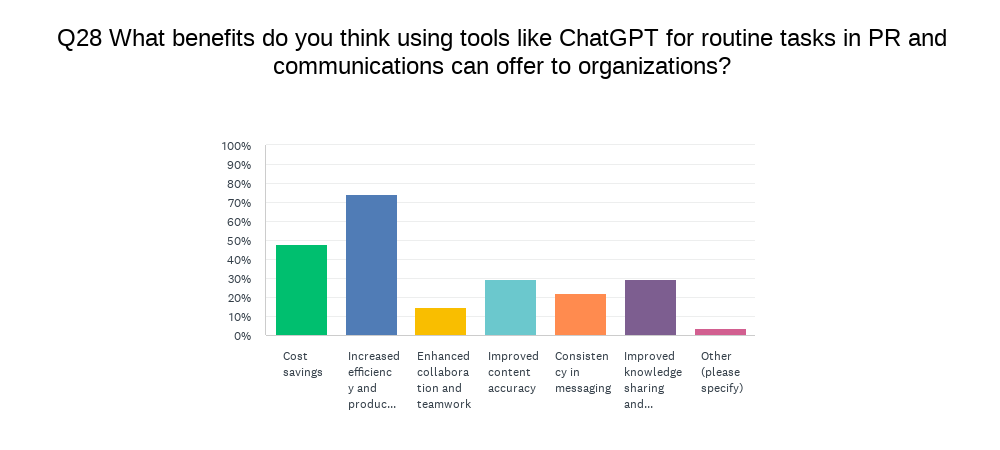
Instead, almost half of in-house comms respondents think generative AI tools cannot handle complex and sensitive information, while there are also concerns about limitations in terms of language nuance, creativity and empathy.
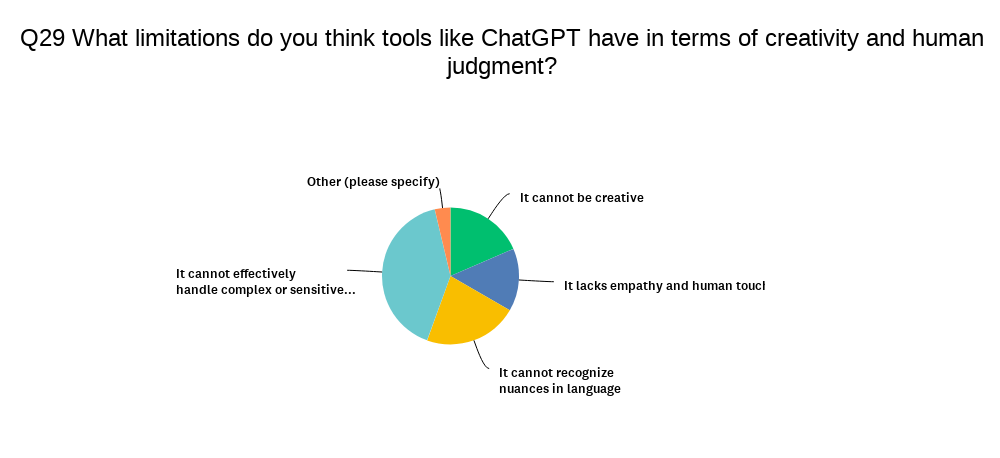
Almost all respondents (93%) believe organisations have a responsibility to ensure the accuracy and impartiality of information generated by tools like ChatGPT. Transparency emerges as the key ethical consideration, narrowly ahead of bias/misinformation, accuracy/impartiality and privacy/data protection.
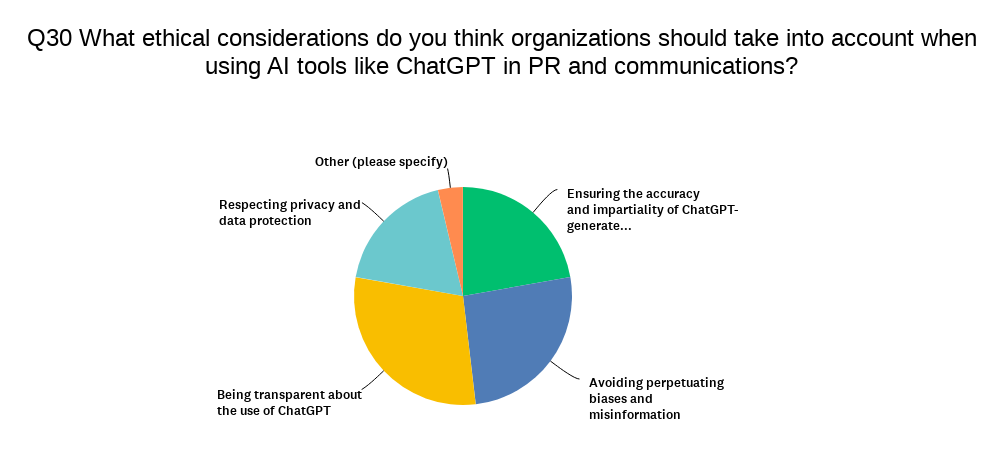
To address these concerns, most in-house leaders think greater transparency is called for, alongside ensuring AI-generated content is accurate and impartial. There is less support for the development of guidelines and best practices.
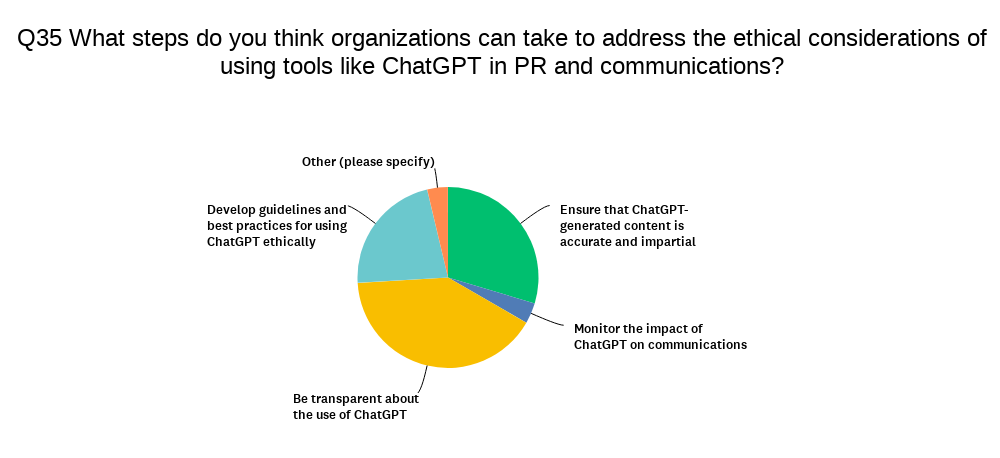
Meanwhile, writing and editing roles are seen as being under most threat (59%), while not a single respondent thinks that jobs in creative, strategy, account management or business development will be imperilled. Instead, almost half of our respondents think that new roles will emerge that focus on data interpretation and analysis, narrowly ahead of creative/strategic roles that require human judgment.
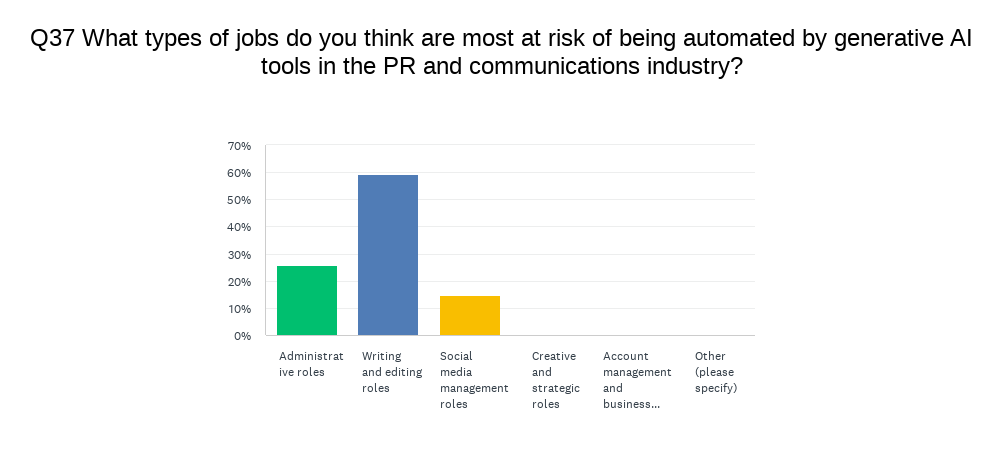
Despite their general wariness about the rise of AI, more than six in 10 respondents think that reskilling will be either 'very' or 'extremely' important in the age of AI. More than half point to data privacy and security as the key challenge when it comes to implementing these tools at work.
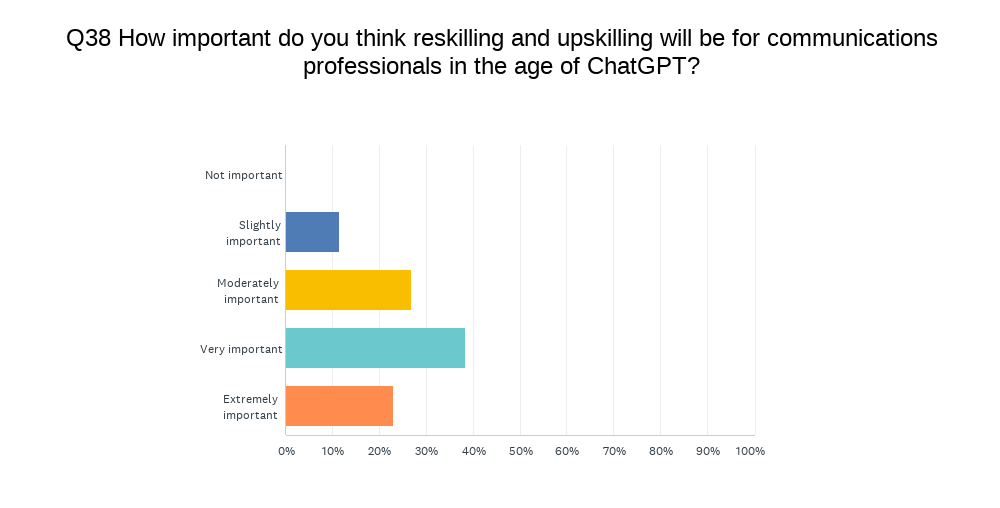
Finally, social media management content creation and scheduling is seen as most ripe for AI automation, ahead of internal comms, knowledge base/FAQ content creation, and email writing/responding.
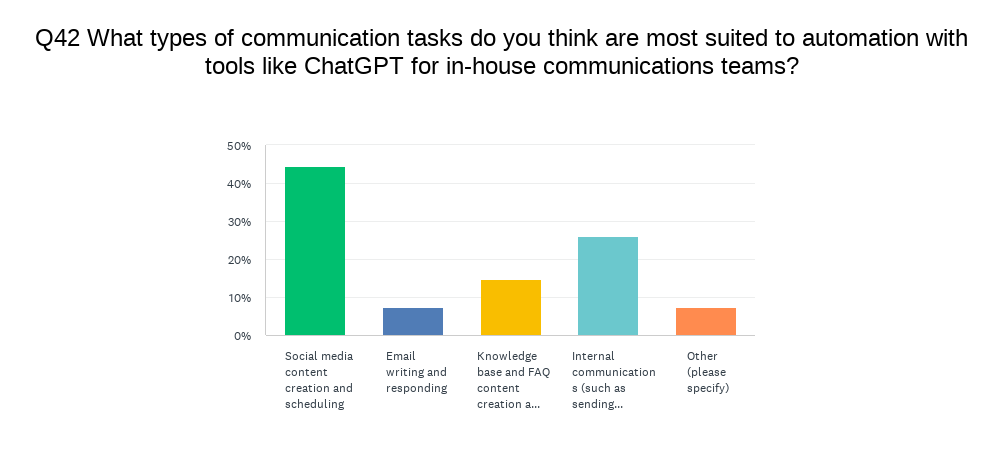



































.jpg)















